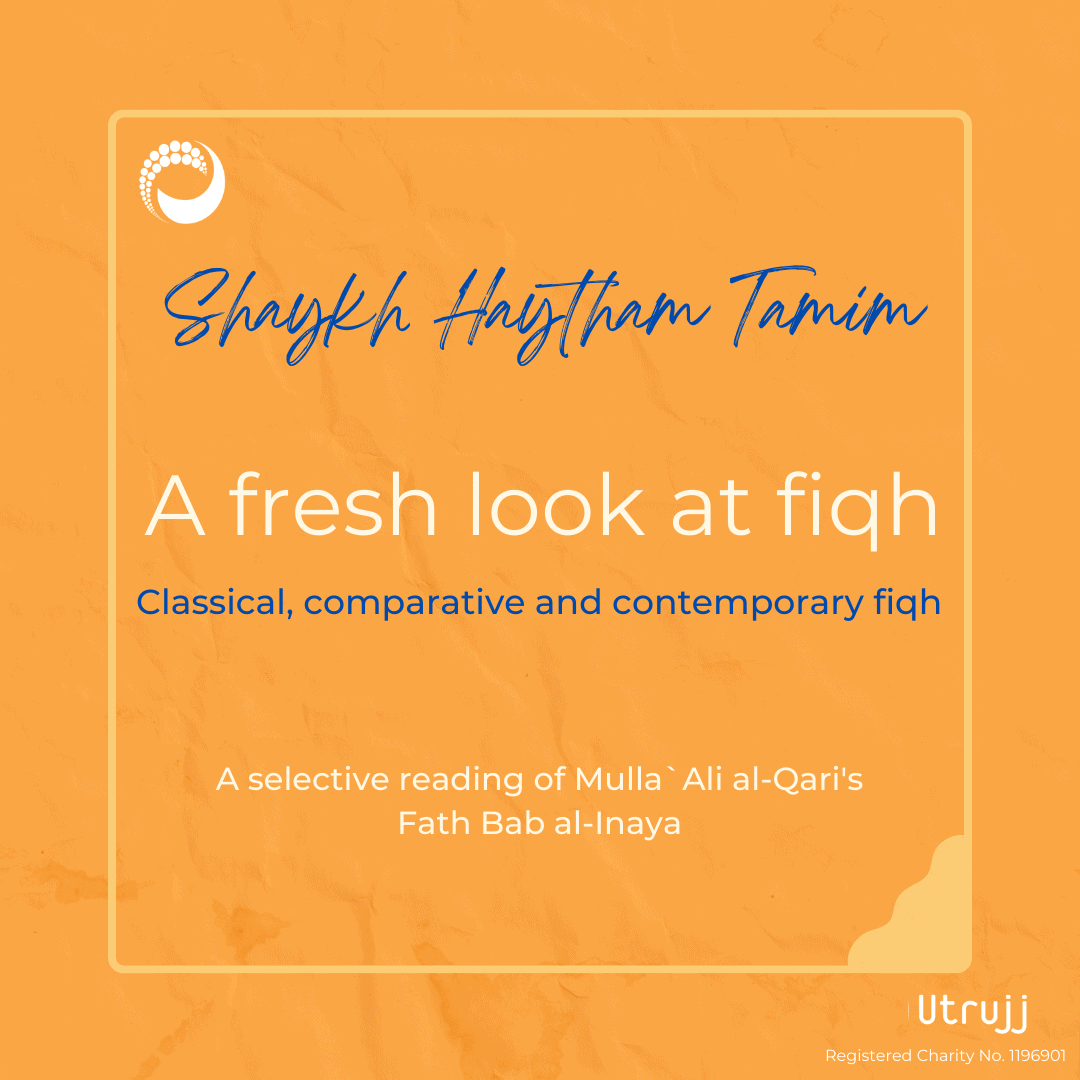What are the Sunnah elements of wudu?

Tahara (purification)
Not everyone is aware that the parts of wudu are divided into the obligations (fard) and the Sunnah, which are rewarding but not essential for a wudu to be valid.
Why is this important? If one finds they are short of water, they can do the minimum aspects of wudu for it to be valid. When they have no problems accessing or performing wudu, they can do the more rewarding wudu with all the sunnah elements.
The obligations are mentioned in the Quran. Mulla Ali begins by listing the obliagation (fard) aspects of wudu:
- Wash your whole face from the hairline above your forehead to the chin and from ear to ear. This does not include the neck or ears. The mouth and nose are not considered fard in the Hanafi school, but are considered fard in the Shafi school.
- Wash both your hands upto and including the elbows
- Wipe over the head.
- Wash both feet up to and including the ankles. Washing between the toes is considered fard by some and Sunnah by the others.
The sunnah elements of wudu
The Sunnah refers to the consistent and regular actions of the Prophet Muhammad (peace be upon him), which we learn through reliable narrations. Linguistically, Sunnah signifies the way or path that guides us. While the Quran tells us what we must do as obligations, the Sunnah provides us with extra actions that bring rewards. If we have limited choices or difficult circumstances, such as a scarcity of water we should focus on fulfilling the necessary obligations. However, if we have the opportunity, it is best to also follow the Sunnah. It brings added benefits and helps us to be closer to the Prophet’s example, deepening our connection with Allah.
Know what is what
In the first place you need to know which elements are fard and which are Sunnah, otherwise you will assume everything is obligatory – such as rinsing your mouth, or repeating actions three times. The ayah in the Quran tells us the fard elements of wudu:
“O you who believe! When you intend to offer salah (the prayer), wash your faces and your hands (forearms) up to the elbows, rub (by passing wet hands over) your heads, and (wash) your feet up to the ankles” [al-Maidah 5:6]
Humran (may Allah be pleased with him) narrated:
حَدَّثَنَا أَبُو الْيَمَانِ، قَالَ أَخْبَرَنَا شُعَيْبٌ، عَنِ الزُّهْرِيِّ، قَالَ أَخْبَرَنِي عَطَاءُ بْنُ يَزِيدَ، عَنْ حُمْرَانَ، مَوْلَى عُثْمَانَ بْنِ عَفَّانَ أَنَّهُ رَأَى عُثْمَانَ دَعَا بِوَضُوءٍ، فَأَفْرَغَ عَلَى يَدَيْهِ مِنْ إِنَائِهِ، فَغَسَلَهُمَا ثَلاَثَ مَرَّاتٍ، ثُمَّ أَدْخَلَ يَمِينَهُ فِي الْوَضُوءِ، ثُمَّ تَمَضْمَضَ، وَاسْتَنْشَقَ، وَاسْتَنْثَرَ، ثُمَّ غَسَلَ وَجْهَهُ ثَلاَثًا وَيَدَيْهِ إِلَى الْمِرْفَقَيْنِ ثَلاَثًا، ثُمَّ مَسَحَ بِرَأْسِهِ، ثُمَّ غَسَلَ كُلَّ رِجْلٍ ثَلاَثًا، ثُمَّ قَالَ رَأَيْتُ النَّبِيَّ صلى الله عليه وسلم يَتَوَضَّأُ نَحْوَ وُضُوئِي هَذَا وَقَالَ “ مَنْ تَوَضَّأَ نَحْوَ وُضُوئِي هَذَا ثُمَّ صَلَّى رَكْعَتَيْنِ، لاَ يُحَدِّثُ فِيهِمَا نَفْسَهُ، غَفَرَ اللَّهُ لَهُ مَا تَقَدَّمَ مِنْ ذَنْبِهِ ”.
(The freed slave of `Uthman bin `Affan) I saw `Uthman bin `Affan asking (for a tumbler of water) to perform ablution (and when it was brought) he poured water from it over his hands and washed them thrice and then put his right hand in the water container and rinsed his mouth and washed his nose by putting water in it and then blowing it out. Then he washed his face thrice and (then) forearms up to the elbows thrice, then passed his wet hands over his head and then washed each foot thrice. After that `Uthman said, “I saw the Prophet (ﷺ) performing ablution like this of mine, and he said, ‘If anyone performs ablution like that of mine and offers a two-rak`at prayer during which he does not think of anything else (not related to the present prayer) then his past sins will be forgiven. ‘ (Bukhari)
Basmallah
Reciting bismillah is a sunnah. There are different opinions whether we should say the basmallah in full, however as a minimum we can say ‘bismillah’ alone. As we usually perform wudu in the bathroom, I am frequently asked whether it is an appropriate place to mention Allah’s name. When he was asked this, my late Shaykh Muhammad Adib al Kallas said flush the toilet and cover it so there is no impurity in the bathroom, and then recite the basmallah. If there is a bin in the bathroom which contains impurity, then it is more respectful to keep it closed. If it is not closed, then it is more respectful to say the basmallah in your heart, rather than out loud. There are many narrations which many that the prophet (peace be upon him) mentioned Allah’s name. The most famous hadith is that the Prophet (peace be upon him) stated:
Start your wudu with the name of Allah (bismillah). (Nasai, Khuzaymah, Daraqutni and Ibn Mandah)
This is the most authentic narration.
Wash hands up to the wrists first
Before commencing your wudu wash your hands up to the wrist (not the elbows). We have several narrations on this. For instance:
اِسْتَيْقَظَ أَحَدُكُمْ مِنْ نَوْمِهِ فَلَا يَغْمِسْ يَدَهُ فِيْ الْإِنَاءِ حَتَّى يَغْسِلَهَا ثَلَاثًا فَإِنَّهُ لَا يَدْرِيْ أَيْنَ بَاتَتْ يَدُهُ . مُتَّفَقٌ عَلَيْهِ
Abu Hurayrah (may Allah be pleased with him) narrated that the Prophet Muhammad (peace be upon him) said:
“If one of you has woken up from his sleep, then he should not put his hand in the container (which contains water) until he washed it (his hands) three times, because he did not know where his hand had stayed overnight.” (Bukhari and Muslim)
Repeat this three times.
Use a siwak
A siwak is a stick used for cleaning teeth. It is from a special tree which has many beneficial properties for teeth and gums. One toothpaste company manufactures toothpaste from siwak. Are we permitted to use this or toothpaste? Yes anything that looks after our health of our body, teeth and mouth is recommended. The Prophet (peace be upon him) encouraged any practice that promoted our hygiene.
You can use the siwak before you start your wudu or afterwards. The Prophet (peace be upon him) did not make it an obligation to brush teeth with every wudu, but had it not created hardship, he recommended it highly. He wanted his Ummah to be pure and clean.
Rinsing the mouth and nose
It is a Sunnah to rinse the mouth and nose. Should we use the same handful of water for the mouth and nose or different. In the Hanafi school, they use two and in the Shafi it is one. The Sunnah is to rinse the mouth three times. It is not the Sunnah to exaggerate rinsing the mouth when one is fasting. Nor to skip it, which is the other extreme. No one said this is the Sunnah. Do the Sunnah without exaggerating by putting a lot of water and then you might swallow it.
Use your right hand to sniff the water and left to emit it.
Start with right side
Perform your wudu with the right side then the left.
Um-`Atiya (may Allah be pleased with her) narrated:
حَدَّثَنَا مُسَدَّدٌ، قَالَ حَدَّثَنَا إِسْمَاعِيلُ، قَالَ حَدَّثَنَا خَالِدٌ، عَنْ حَفْصَةَ بِنْتِ سِيرِينَ، عَنْ أُمِّ عَطِيَّةَ، قَالَتْ قَالَ النَّبِيُّ صلى الله عليه وسلم لَهُنَّ فِي غُسْلِ ابْنَتِهِ “ ابْدَأْنَ بِمَيَامِنِهَا وَمَوَاضِعِ الْوُضُوءِ مِنْهَا ”.
The Prophet (peace be upon him), at the time of washing his deceased daughter had said to them, “Start from the right side beginning with those parts which are washed in ablution.” (Bukhari)
Beards
If you have a big heavy beard it is enough to wash the outside. The Prophet’s beard (peace be upon him) was a fistful. He used to comb his beard with his fingers (takhleel). It is not an obligation to make the water reach the skin beneath a heavy beard. If the beard is sparse, then the obligation is to rub the jaw and allow the water to reach the skin.
Wash between fingers and toes
It is the sunnah to wash between the fingers and toes. If you have a tight ring, you do not need to remove it but you need to move it to allow water to reach under it.
Repeat washes three times
Wash the hands three times, rinse the mouth and nose thrice, then wash hands to the elbows thrice. Wash the beard and between the fingers.
Wipe over the head once
Scholars say it is better to wipe over the whole head, which is the Sunnah. You may wash less of the head.
Wash feet up to ankles and between the toes
Rub your feet and between the toes.
Wiping ears
Use the same water with which you wash your head (preferably with the last three fingers) to wipe your ears. Use your thumb behind the ears and forefinger to wash inside the ears.
Medicine on feet
If you have medicine on your feet, such as medicated cream for cracked and bleeding skin, you can keep the medicine on and wash over it.
Intention
The definition of niyyah is what resides in the heart. You do not need to verbalise it. You need to know in your heart what you are doing. The Maliki, Hanbali and Shafis consider the niyyah as obligatory. There is a big debate between them and the Hanafi school who do not accept that.
The sequence
The hands, mouth, nose and face, hands to elbows, head, ears. The neck is not part a confirmed Sunnah as the narrations on this are weak, but not fabricated. From time to time you can wash the back of your neck.
If you miss a body part can you come back and wash it. In the Hanafi school you can do this but in the Shafi school the order of the body parts is important. This is because the Shafi school understand the letter wow as indicates the order, which is immutable. However the Hanafi school say it can be done in any order. The reason for the difference is the opinions is linguistic. If you miss a body part then the Shafis would repeat the whole wudu, where as the Hanafis would just do the missing part.
Do not delay
Do not go off and then come back to complete you wudu, for instance answering the door.
Shaykh Haytham Tamim – 6th July 2023
Related posts
Recommended Posts

The forces of Allah and the fate of the falsifiers
April 26, 2024

How Allah strengthens the hearts of believers
April 19, 2024

